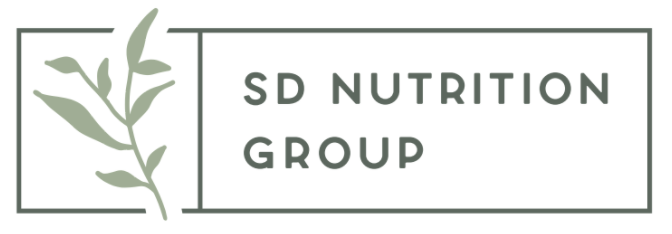Orthorexia: When Healthy Eating Becomes Harmful
You might have read the title of the blog post and thought to yourself “how could healthy eating be harmful?”. With our society’s current obsession with all things health and wellness, it seems like everyone is hell-bent on being as “healthy” as humanly possible. But there is a line where healthy eating crosses into disordered eating territory and can have some really severe consequences.
Orthorexia is an eating disorder that involves an obsession with proper or “healthful” eating. Being aware and mindful of the nutritional content of food on its own isn’t necessarily a bad thing, but with orthorexia, the person becomes so fixated on only eating healthy, clean, or pure foods that it actually becomes damaging. This way of thinking about food becomes so rigid and controlling that it interferes with daily life. Although orthorexia isn’t included in the Diagnostic and Statistical Manual of Mental Disorders, Fifth Edition (DSM-5), it is still recognized by many mental health and eating disorder professionals.
A lot of social media influencers in the health and wellness world promote this type of rigid thinking with food and exercise. Messages like “exercise like this for 6-pack abs in 2 weeks”, “how I cut out sugar”, or “3 reasons why you should avoid gluten at all costs” are everywhere. The messages that then get internalized are food isn’t safe, and I can’t trust my own body. This can quickly spiral into disordered eating. If a way of eating and exercise causes you fear, anxiety, or distress in some way, that way of eating and exercising is no longer healthy for you.
Signs of Orthorexia
Because our culture is obsessed with health and wellness, and that type of behavior is often praised and celebrated, orthorexia often goes unnoticed and untreated. Some signs that healthy eating has gone too far are:
Compulsive checking of ingredients lists or food labels
Increased concern about the nutrient content of foods or health of ingredients
Cutting out increasing numbers of foods or food groups (sugar, carbs, dairy, gluten, animal products; or a sudden transition to veganism)
Inability to eat anything but foods deemed “clean”, “natural”, or “pure”
Spending hours a day thinking about food
Experiencing high levels of distress when “safe” or “healthy” foods aren’t available
Obsessively following “wellness” or “health” influencers, blogs, or social media accounts
Showing an unusual interest in what others are eating
Obsession with exercise
Health Consequences of Orthorexia
Like anorexia, orthorexia involves restriction in the amount and variety of foods eaten, which can result in malnutrition. There are many severe health consequences to not eating enough. Eating disorders, orthorexia included, affect every major organ system in the body. Some health consequences are:
Low blood pressure and heart rate
Hormone imbalances, including decreased testosterone in males
Gastrointestinal symptoms such as constipation, bloating, and diarrhea
Electrolyte abnormalities including potassium, sodium, and chloride, which can lead to seizures, heart problems, and muscle cramps
Kidney problems
Blood sugar fluctuations
Mood swings and trouble concentrating
Decreased immune function
Low Energy Availability-What About Athletes Who Eat “Clean”?
Energy availability is the amount of dietary energy remaining after exercise, available for other physiological functions such as growth, muscle recovery, and homeostasis. Basically, we need to consume enough calories from food to support both exercise and normal body functions. Low energy availability (LEA) occurs when the calorie intake of an athlete is not enough to meet the daily energy needs of the body plus training.
So, how are LEA and orthorexia related? Athletes, particularly those involved in sports that emphasize appearance, weight requirements, or muscularity (for example: dance, gymnastics, diving, bodybuilding, skating, or wrestling) are at greater risk for developing eating disorders, including orthorexia. Often times, the pressure to excel in their sport and emphasis on body weight and shape lead to disordered eating behaviors. An obsession with healthy eating can often mean diets consist of high fiber, low calorie foods (large salads with no carbs, extensive use of diet products, only eating specific “healthy” foods, vegetables and lean protein). Food rules and restriction that occur as a result of orthorexia prevent athletes from meeting their energy needs.
Some signs and symptoms of LEA include:
Reduced training capacity
Repeated injury or illness
Delayed or prolonged recovery times
Change in mood
Failure to lose weight
Reduced or low bone density
Loss or disruption of menstrual cycle
Excessive fatigue
When healthy eating goes too far
To quote dietitian Jessica Setnick, “When nutrition is positive, it expands your horizons and accentuates the joy in life. When nutrition is pathological, it isolates you and drags you down”. Food is just one way that we take care of ourselves. When food and nutrition start to interfere with relationships, cause fear, stress and anxiety, and become a set of rigid rules that must be followed, it’s no longer taking up a healthy space in your life. And if you’re not eating enough at baseline, any benefits the healthful food might have are lost.
Remember, food is meant to be enjoyed. It should be freeing, flexible, and fun. No “healthy” food is worth your mental and emotional wellbeing. And no one food, meal, or way of eating has the power to make you healthy or unhealthy. There is no such thing as “perfect” eating. Food should add to your life, not take away from it.
If you or someone you care about is struggling with orthorexia or an obsession with healthy eating that’s interfering with life, help is available. Even if you’re not sure or just have questions, we’d love to help. SD Nutrition Group is accepting new clients, and you can find our contact info here.
